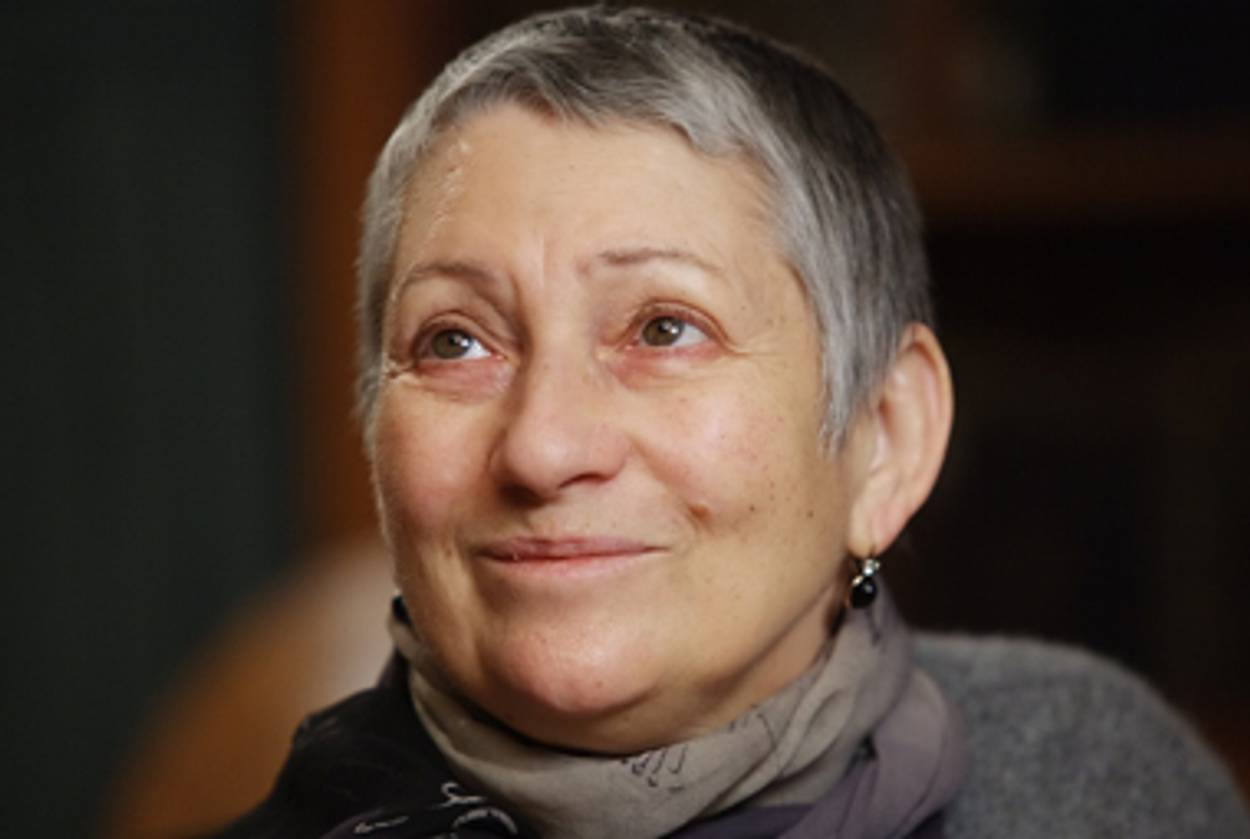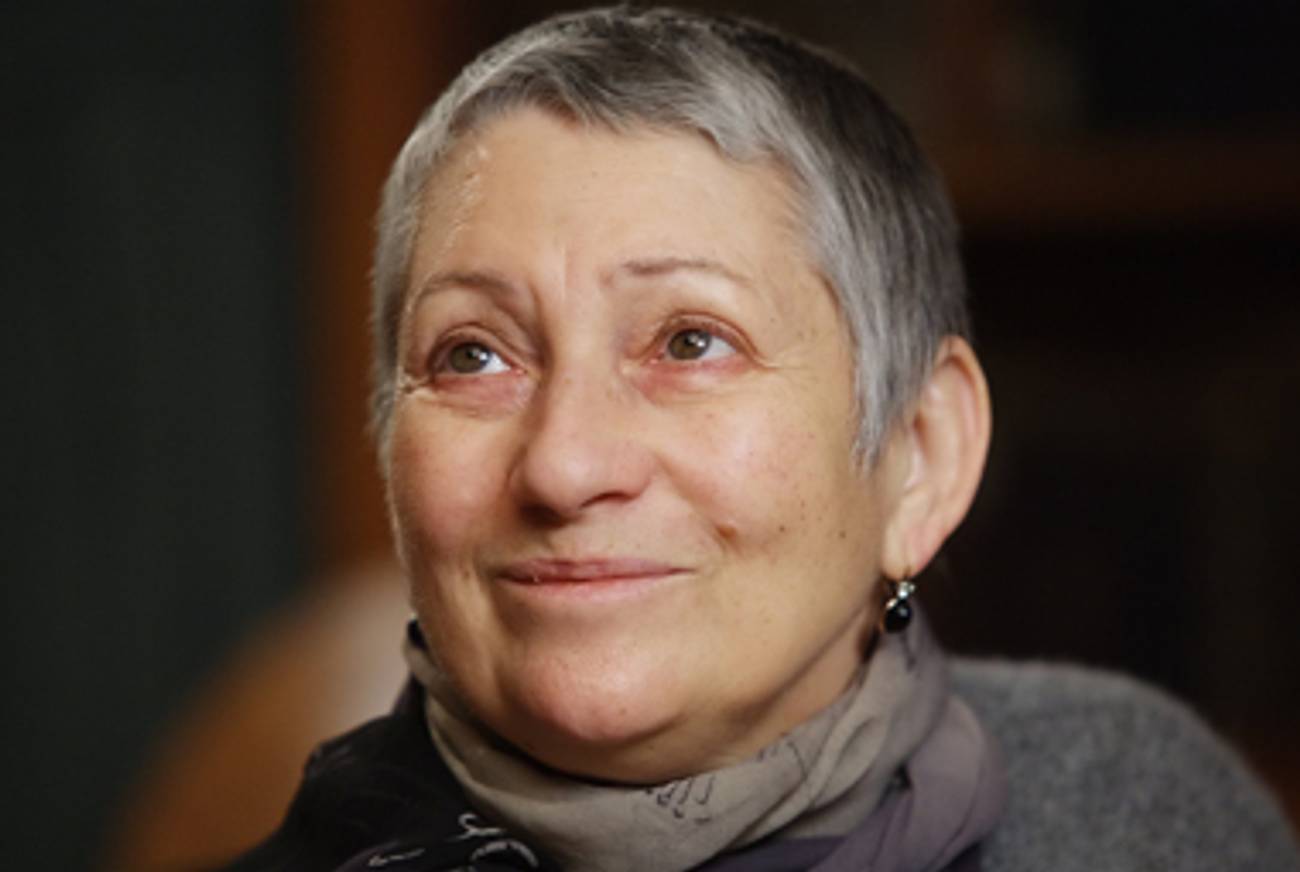Translations
Ludmila Ulitskaya’s playful new novel focuses on a Jewish Christian saint, a human contradiction who strives to bring peace and compassion to a plagued world




Throughout her career, the acclaimed and widely translated Russian writer Ludmila Ulitskaya has perfected the craft of weaving together complicated plots around a core enigmatic figure. Two of her earlier novels available to the English-language reader follow this organizing principle: In The Funeral Party, published in 1999, Ulitskaya assembled a motley crew of mismatched Russian émigrés in New York around a dying artist, a Russian Jew, people connected through his past romances, infidelities, friendships, and betrayals in the Soviet Union and in the United States. Medea and Her Children, published in 2002, was a tale of a Greek family in the Soviet Union, the novel’s many peripheral plots stitched together in a similar fashion around the book’s title character.
Similarly, the protagonist of Ulitskaya’s latest translated novel, Daniel Stein, Interpreter, released earlier this year by the Overlook Press, is a similar unifying force for fascinating characters and historical moments. Subtitled “A Novel in Documents,” the book is based on the real-life story of Oswald Rufeisen, a Polish Jew who, through a string of odd circumstances, ended up as an interpreter for the Gestapo and managed to rescue 300 Jews from a ghetto in Belorussia during the Holocaust. On the run from the Germans, Rufeisen, reimagined here as an interpreter named Stein, hides out in a convent among Carmelite nuns, is baptized by them, and, after the war, becomes a Catholic priest known as Brother Daniel. In the late 1950s, Brother Daniel (both fictional character and historic figure) makes his way to Stella Maris, Haifa’s Carmelite monastery, and appeals against Israel’s decision not to grant him citizenship under the Law of Return. Having been born a Jew, he argues, he had every right to automatically become a citizen in the Jewish state similarly to any other ethnic Jew. He loses the case, and, as a result, the Law of Return is amended to exclude Jews who converted to other religions. In telling this extraordinary story, Ulitskaya weaves together letters, diary entries, transcripts of conversations, and secret-police reports, some real and some fictitious, and offers a gallery of real-life and made-up characters.
She couldn’t have assembled a more diverse cast: a middle-aged woman born in the forest to Jewish partisans during the Holocaust; her gay son and her Communist mother; a Jewish widow of a doctor whom Brother Daniel saved from the ghetto; an Israeli Arab gardener and his secret lover, a German woman who devotes her life to living in Israel to overcome Germany’s role in the Holocaust; secret-police agents (of the Soviet, Nazi, and Israeli variety); and even Pope John Paul II, who is Brother Daniel’s friend from postwar Poland. Pulling them all together is Daniel himself: The interpreter-turned-priest, Ulitskaya suggests, is the “living body” that “had been the sole bridge between Judaism and Christianity.”
Such an ecumenical position, of course, doesn’t come easily, and much of the book focuses on Daniel’s desire to transcend both the interdenominational battles of Christianity as well as centuries of Christian prejudice toward the Jews. Reminding others that early Christians saw no contradiction between following the teachings of Jesus and being Jews, Daniel seeks a religion free of later church doctrines, such as the holy trinity, a religion that would retain all of the central tenets of Judaism. Needless to say, Daniel’s version of Jewish Christianity attracts the ire of dogmatic followers of Catholicism, Russian Orthodoxy, and Judaism alike, some of whom soon try to excommunicate the renegade priest and others use obscure kabbalistic practices to lay a curse on him.
Not all of Ulitskaya’s characters display intellectual and spiritual flexibility similar to Daniel’s. One of the novel’s characters is a woman who believes that her child, born with Down syndrome, is the next messiah; another is a Russian man convinced that Jews have concealed the truth from the world by presenting Christianity as a poor substitute for the real faith. Jewish zealots also abound, represented by Gershon Shimes, a Russian-born settler with a violent streak. Through the character of Shimes, who in Ulitskaya’s novel is complicit in the massacre of 29 Palestinian Arabs by Baruch Goldstein in Hebron in 1994, the writer traces a trajectory—not without a good deal of accuracy—of a certain subset of Soviet Jewish refuseniks who turned to extreme views once they relocated to Israel.
Of all of Ulitskaya’s characters, however, the most important one, arguably, is the author herself: Throughout the novel, a character named Ludmila Ulitskaya shares her reflections on writing the novel in letters to her friend, the writer Ulitskaya’s real-life agent. Born in 1943, Ulitskaya is one of a number of Russian Jewish writers and intellectuals who, motivated both by spiritual yearnings and by their experiences as dissidents in the Soviet Union in the 1960s and the 1970s, converted to Christianity. “Converted” is not an entirely appropriate term for this phenomenon, eloquently described in Judith Deutsch Kornlblatt’s study Doubly Chosen: Jewish Identity, the Soviet Intelligentsia, and the Russian Orthodox Church. Because the Soviet understanding of “nationality” was entirely decoupled from religion, Jewishness, as an ethnicity, was perceived as having nothing to do with Judaism, a religion. Consequently, being a Russian Jewish Christian was not a contradiction: Ulitskaya, and others like her, identifies culturally and ethnically as a Jew, and religiously as a Christian. This rich and complex approach is everywhere reflected in Ulitskaya’s provocative novel.
It’s an approach that has won the book many fans. Shortly after its original publication in 2006, the novel won the Russian Booker prize, and it has enjoyed both critical and commercial success. The acclaim may be attributed to socio-political circumstances even more than to pure artistic merit: With Christianity becoming a fashionable state religion under the Russian system’s current corruption and authoritarianism, a protagonist drawn in the image of the author herself—a Russian Jewish Christian—the product of historical circumstances now long gone—emerges as a polyglot preacher of tolerance, a modern-day saint.
And if Brother Daniel is a saint, the miracle he performs is translation, an act of inter-cultural and inter-religious understanding that seeks to leave ample space for individual difference.
Sasha Senderovich is a Mellon postdoctoral fellow at the Center for the Humanities at Tufts University.
Sasha Senderovich is an assistant professor in the Department of Germanic and Slavic Languages and Literatures, and the Program in Jewish Studies at the University of Colorado, Boulder.
Sasha Senderovich is an assistant professor in the Department of Germanic and Slavic Languages and Literatures, and the Program in Jewish Studies at the University of Colorado, Boulder.